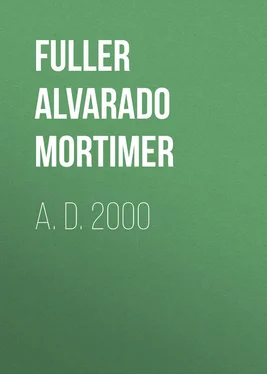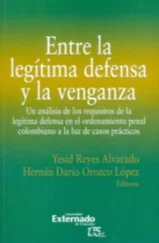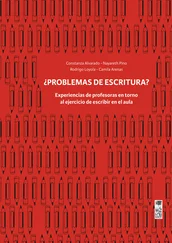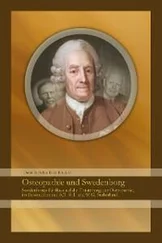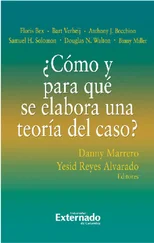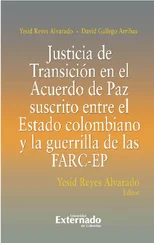Alvarado Fuller - A. D. 2000
Здесь есть возможность читать онлайн «Alvarado Fuller - A. D. 2000» — ознакомительный отрывок электронной книги совершенно бесплатно, а после прочтения отрывка купить полную версию. В некоторых случаях можно слушать аудио, скачать через торрент в формате fb2 и присутствует краткое содержание. Жанр: foreign_antique, foreign_prose, на английском языке. Описание произведения, (предисловие) а так же отзывы посетителей доступны на портале библиотеки ЛибКат.
- Название:A. D. 2000
- Автор:
- Жанр:
- Год:неизвестен
- ISBN:нет данных
- Рейтинг книги:4 / 5. Голосов: 1
-
Избранное:Добавить в избранное
- Отзывы:
-
Ваша оценка:
- 80
- 1
- 2
- 3
- 4
- 5
A. D. 2000: краткое содержание, описание и аннотация
Предлагаем к чтению аннотацию, описание, краткое содержание или предисловие (зависит от того, что написал сам автор книги «A. D. 2000»). Если вы не нашли необходимую информацию о книге — напишите в комментариях, мы постараемся отыскать её.
A. D. 2000 — читать онлайн ознакомительный отрывок
Ниже представлен текст книги, разбитый по страницам. Система сохранения места последней прочитанной страницы, позволяет с удобством читать онлайн бесплатно книгу «A. D. 2000», без необходимости каждый раз заново искать на чём Вы остановились. Поставьте закладку, и сможете в любой момент перейти на страницу, на которой закончили чтение.
Интервал:
Закладка:
“Wait! You will understand it all soon,” answered Cobb. “There is little more to do to-night.” Then, taking a paper from his pocket, he scanned it for fully five minutes, making a few notes upon it with his pencil during the time.
At last, seeming satisfied, he bent over the compass in the box, and by a small screw in its side turned the whole delicately adjusted works around until a fine pointer, from which projected a tiny hook, became flush with the figures 260 from the zero of the scale, or to a reading of 4 degrees 20 minutes; then turning the whole compass-box around, he carefully adjusted it so that the needle should point exactly to the figures 993, equivalent to a reading of 16 degrees 33 minutes, the magnetic variation east, of San Francisco, California, in December, 1887.
It was easy to see that the little hook which hung down from the overlapping works would become engaged with the needle of the compass if the latter were to retrograde in arc 12 degrees 13 minutes.
Unscrewing a cap on the top of the case, he applied a small air-pump, which he had taken out of the box, to the opening, and screwed it firmly on; then, closing the glass door, he placed cement along the junction of the door and sides, from a bottle which he had brought for that purpose. In a few moments, the cement had set, and then, working the air-pump, he soon exhausted the air from the case; finally unscrewing the pump, he replaced the cap and laid the pump in the corner of the chamber.
All this being finished to his satisfaction, he announced that the work for the night was completed.
Looking at his watch, Cobb said:
“It is now four o’clock in the morning, and time that we should get out of this if we don’t wish to be seen departing. We have done all that it is possible to do for the present; let us at once start for town; besides, you have to be at the post by six o’clock.”
“Yes, that is true,” returned Hathaway; “we are due at that hour. We have done a good deal of work, but for the life of me, I am totally ignorant of the purposes of all this apparatus. I would like to have you explain some of it to me,” and his eyes turned inquiringly toward the large case with its wheels and compass.
“All in good time!” and Cobb cautiously opened the swinging panel.
The coast was clear; not a single person was in sight.
“Now, then, be lively!” and he stepped out, the others following quickly. In another moment the door was closed, and not a sign was left to indicate that the pedestal of the Statue of Liberty held within its interior the apparatus necessary for prolonging the life of a human being.
The three friends passed down the hill, and took the Haight-street cars for the city. It was the first car for the day, and not another passenger was on board.
Arriving at the Occidental, Cobb said:
“You are expected to be at reveille this morning, but I have no duties until retreat. There are a few things that I wish to attend to; so I will leave you here. Be sure to be at my quarters at 9:30 to-night. Good-bye!” and he left them without waiting for a reply.
It was nearly eight o’clock, and after a hearty breakfast, when Cobb left the hotel, passed down Montgomery street into Washington, and made his way to a small-sized house at the foot of an alley leading from that thoroughfare.
The windows of the house were all closed by shutters, and the whole building bore an aspect of dilapidation.
Ascending the four rickety steps that led to the door, he gave a sharp knock, repeating it after a moment, as no answer was obtained.
“Who knocks?”
“It is I, Colchis! Open the door.”
The door swung open, and Cobb entered, the door closing behind him with a bang.
CHAPTER IV
It is necessary to go back a few months in our story, and introduce a new character, the inhabitant of the little old, dilapidated house in the lane.
On the evening of December 10, 1886, as Cobb was coming out of the Cosmos, a favorite club of the young gentlemen of San Francisco, he had run into an old and crippled man who was passing down the street. Cobb was in a hurry as he emerged from the place, and did not notice the poor pedestrian in time to avoid a collision. The consequences were that the old man was knocked to the ground, and appeared to be badly hurt. Cobb at once stopped and lifted the man up to ascertain the extent of his injuries, and finding him still insensible, had called a hack to convey him to the nearest druggist.
The man was about sixty years of age, his right leg partially paralyzed, the sight of his right eye gone, and deep scars upon his face and neck. His clothes were shabby and much worn, yet there were indications that the man had seen better days.
That portion of his face which was not scarred and seamed, gave evidence of quickness and perception, and a general appearance of knowledge and former refinement was plainly noticeable. His hands, too, were not those of a man accustomed to hard work.
This man was Jean Colchis, a native of France, but a refugee from that country. He had, in his time, been a great chemist; he had been noted, far and near, as a man greatly gifted in the sciences, and one who had given much to his native country in the way of scientific invention; but, at a later day in his life, he had been led away by the persuasion of others to engage in a plot against the ruling power of his land. This plot being discovered, he was sentenced to death, but, escaping, had taken refuge in the United States.
He was the recipient of a small pension from the members of his family who had not joined in the conspiracy, and upon this small pension Jean Colchis lived in the humble and rickety house in Duke’s Lane.
The pension was sufficient for all the needs of the old man and his only daughter, a lovely girl of seventeen years; it gave them their daily sustenance and life, and a slight margin from which to purchase the few things he needed to continue the one hobby of his life, chemical analysis.
When Cobb had taken the old man to the druggist’s, an examination had shown that nothing but a slight contusion of the side of the head had resulted from the unexpected knock-down he had received. He soon regained his senses, but was in a weak and helpless condition.
Learning from him the place of his abode, Cobb at once took him there in a hack, and carefully attended him during the remainder of that evening.
Such was the introduction of Junius Cobb to Jean Colchis.
Cobb’s kindness to the old Frenchman was rewarded by an invitation to call again, and as he descended the stairs of the old, rain-beaten house, he resolved to come the next evening.
He did come, and many evenings after, and it was from this old man that Cobb first learned the art of making ozone in quantities. It was not a difficult matter for them to ascertain the various hobbies each possessed. Their conversation soon gave each an insight into the desires of the other for a knowledge of the many things yet unknown, but yet imagined. Their desires being so assimilated, their tendencies so coincident, it was only natural that each should take more than a common liking to the other.
But, though he had worked with Colchis in the manufacture and uses of ozone, the latter never had any idea of the grand scheme his friend had in view, for Cobb would not communicate the secret to him for fear that he might divulge it to others.
The door of the old house had opened to admit Cobb, and had closed again, leaving him in the hall. There was no light to guide him, but his knowledge of the place and surroundings was such that he found no difficulty in ascending to the little back parlor where Colchis usually sat when not at work.
Opening the door, he entered, and was quickly clasped about the neck by a pair of plump white arms, while a face, radiantly beautiful, looked into his, and a red pouting mouth invited the kiss which he quickly bestowed upon it.
Читать дальшеИнтервал:
Закладка:
Похожие книги на «A. D. 2000»
Представляем Вашему вниманию похожие книги на «A. D. 2000» списком для выбора. Мы отобрали схожую по названию и смыслу литературу в надежде предоставить читателям больше вариантов отыскать новые, интересные, ещё непрочитанные произведения.
Обсуждение, отзывы о книге «A. D. 2000» и просто собственные мнения читателей. Оставьте ваши комментарии, напишите, что Вы думаете о произведении, его смысле или главных героях. Укажите что конкретно понравилось, а что нет, и почему Вы так считаете.
